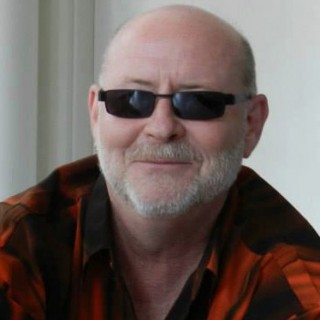
Newborn moved to Los Angeles in the early 1960s to record on the Contemporary label and, while he enjoyed some success, many critics dismissed him as having become such a technical virtuoso with powerhouse chops that he had lost all emotion and feeling in his music. Whether it was the result of this kind of rejection, as some feel, or if Newborn simply suffered from an undiagnosed mental illness, he fell into a slow and steady psychological decline. For the next decade he spent time in and out of mental institutions. His career was almost nonexistent. Compounding that was a hand injury that impaired his playing, as well as the fact that musical tastes were changing rapidly. Things weren’t the same for many of the world’s great jazz artists as they had been in the 1940s and 1950s. Newborn moved back to Memphis in the early 1970s, which, according to some, accelerated his mental decline. In 1974, while preparing to record the album Solo Piano, which was to be his comeback album, he was attacked and brutally beaten, leaving him hospitalized with several broken fingers, a fractured cheekbone, and other injuries that required surgery. Surprisingly, however, on the evening of his release from the hospital, Newborn went to Ardent Studios in Memphis and recorded “Solo Piano”. Although it received mixed reviews from critics, it was nominated for a Grammy Award the following year. The album was produced by Newborn’s close friend and colleague Fred Ford, a jazz pioneer himself who in the late 1970s traveled with Newborn to the Montreaux Jazz Festival and other European gigs. Ford also used Newborn on another album he produced, Vanilla, by actress Cybil Shepherd.











What Others are Saying
Phineas Lajette Newborn Jr. suffered with an illness because of the medication he was given without being given the right therapy to go with it. He died on the front porch of the house he bought his mother, after being on Beale Street all night with friends and fans.
It is beyond heartbreaking that sooo many of our genius’s of black classical music suffered from three things that have never been properly addressed,neglect through racism,decline from mental illness’s that invariably were always treatable,and lastly physical beatings,and attacks that served to derail their careers,as well as hastening the sad decline of their health making all the more precious the memory,compositional works,and phenonominal genius of giants such as bud powell,mingus,phineas newborn,butch warren and countless others.GODS mercy on them,our thanks for blessing us with them and their matchless art,and may he bring low and humiliate in this life as well as the next,those who live to hurt others,and spread the poison of racism,pain,and misery.AMEEN Rasheed Al jawar musician,fan,and believer in GOD AND ALL HE COMMANDS AND DECREE’S. PEACE!